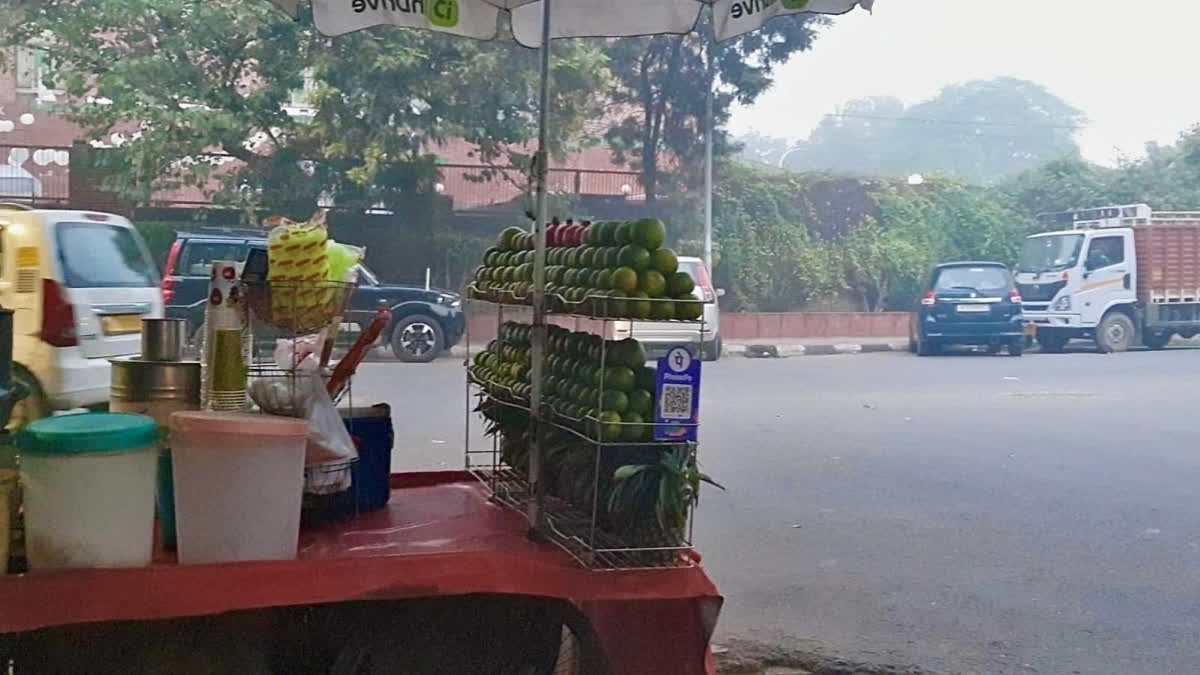New Delhi: The serious environmental condition in the national capital has impacted local businessmen and traders, giving them a tough time as people opt for staying indoors to avoid falling prey to harmful gases in the atmosphere.
Delhi NCR’s air quality continues to deteriorate, with the Air Quality Index (AQI) reaching an alarming 488 at 9 am on Tuesday. Out of the 32 monitoring stations in the capital, 31 recorded AQI levels exceeding 480. Two stations, ”Alipur and Sonia Vihar, maxed out at 500.
On Monday, Delhi recorded its second-worst air quality in six years with the AQI touching 494. The crisis has prompted the activation of Stage IV of the Graded Response Action Plan (GRAP), enforcing strict pollution control measures.
Impact on Businesses and Vendors: The pollution crisis has not only impacted health but also disrupted businesses, especially those in the informal economy. Street vendors, who rely on daily customers, are witnessing a sharp decline in sales.
“Due to pollution, there is a lesser influx of customers because they are not stepping out of their homes,” said Shyam Kala, a tea vendor in Delhi. Omkar, another street vendor, echoed the sentiment, stating that with worsening pollution conditions, fewer people are coming out to eat, giving their trade a significantly tough time”
Juice vendor Zubair Ahmed said that with schools and colleges shut and fewer office-goers, sales have plummeted. "The weather turning colder has worsened the situation," he added. The reduced foot traffic in markets and streets has created a ripple effect, affecting vendors’ livelihoods and the local economy.
Economic Toll of Air Pollution: Air pollution’s impact extends beyond small businesses. Globally, it leads to the loss of 1.2 billion workdays annually, a figure projected to rise to 3.8 billion by 2060. In India, air pollution cost the economy $95 billion in 2019 due to reduced productivity, work absences, and premature deaths.
Poor air quality also affects talent recruitment, with heavily polluted cities becoming less desirable workplaces. For instance, Panasonic offered hardship compensation to employees in China due to air quality concerns in 2014, highlighting how pollution influences corporate decisions.
Government’s Response Under GRAP-IV: To tackle the crisis, the Commission for Air Quality Management (CAQM) has enforced Stage-IV GRAP measures, including:
• Ban On Trucks: Non-essential truck entry into Delhi is restricted, except for those carrying essentials or using clean fuel.
• Construction Halt: All construction activities for public projects, including roads and flyovers, are suspended.
• Vehicle Restrictions: Delhi-registered BS-IV or older diesel vehicles, except for essential services, are banned.
• Work-From-Home Policies: Offices in NCR are operating at 50% capacity, with the rest working remotely.
• Online Education: Schools have shifted to online classes for students up to Class 9 and Class 11, with only Classes 10 and 12 allowed offline.
The government has also suggested implementing odd-even vehicle rules and limiting non-essential commercial activities.
Health and Environmental Crisis: The thick smog engulfing Delhi has not only led to respiratory illnesses but has also impacted the cognitive performance of employees. Experts opine that addressing air pollution requires systemic changes across sectors, from cleaner supply chains to sustainable office operations.
As Delhi grapples with the crisis, its ripple effects on health, businesses, and the economy underline the urgent need for long-term solutions.
Read More:



